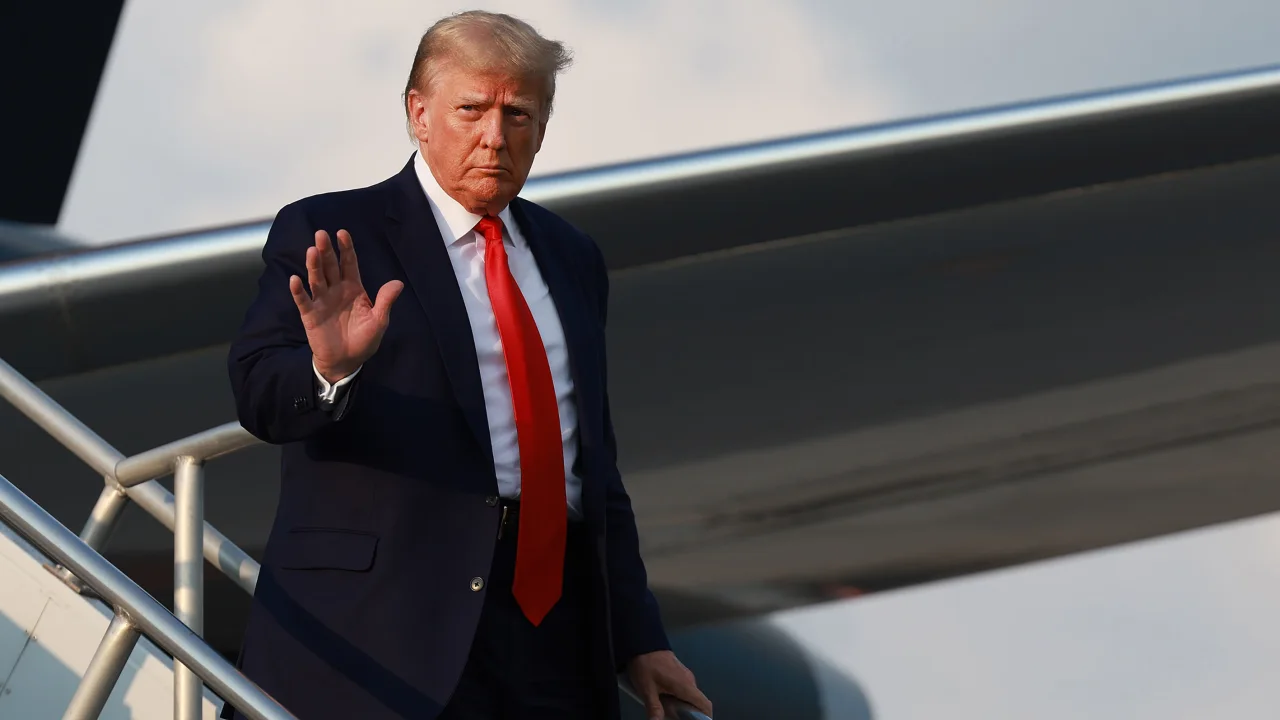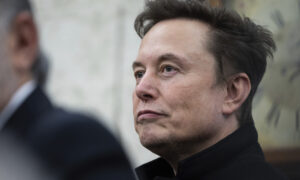Donald Trump is ahead of his nearest competitor for the 2024 Republican presidential nomination, Florida Governor Ron DeSantis, by almost 40 points, according to recent polls. It comes to reason that the former president’s Republican challengers would take this as an opportunity to criticise him in an effort to chip away at his massive lead in the primary election, which now sits far above 50%.
But it appears that his opponents are either hesitant or unwilling to do so.
The evidence is in the numbers. Those who have attacked him have experienced a drop in support among Republican voters, while those who are climbing in the primary polls rarely, if ever, bring up Trump at all.
If you want to know what happens when a Republican contender is strongly critical of the former president, go no farther than former New Jersey Gov. Chris Christie. Christie’s unpopularity within his own party is at an all-time high.
According to a recent poll conducted by Quinnipiac University, he has a net favourable rating of minus 44 points among Republican voters. Sixty-one percent of Republican voters had a negative opinion of him.
In fact, as the presidential race has progressed, Christie’s unpopularity has only grown.
As far as I can tell, his net favorability rating is lower than any other Republican presidential candidate since at least 1980.
This doesn’t mean the GOP as a whole doesn’t back Christie, though. A poll conducted in July by the New York Times and Siena College is illustrative.
Among Republicans who voted for Joe Biden in 2020, the former governor of New Jersey received the most support (22%) from primary voters. The issue is that this demographic represents less than 10% of the people who cast ballots in the Republican primary. Christie received the backing of only about 1% of the remaining 90% or so.
Christie’s unfavourable scores are shared by other Republican presidential candidates who are opposed to Trump.
The only presidential candidate at last week’s first GOP debate who did not raise his hand when asked if they would support the former president as the party nominee even if he were convicted in a court of law was former Arkansas governor Asa Hutchinson, who has called on the GOP to move on from Trump. (Christie initially raised his hand, but then made a pointing motion to emphasise that Trump’s behaviour should not be accepted. His absence at the debate in Milwaukee was widely noted.
Quinnipiac found that 65% of Republican primary voters had not heard enough about Hutchinson to form an opinion prior to the debate. A net favorability rating of -18 points indicates that a majority of those polled have a negative impression of him.
Ex-Texas Rep. Will Hurd, another Trump opponent, was left off the debate stage, and 83% of Republicans don’t know enough about him to have an opinion. The percentage of those who have formed an opinion about Hurd is comparable to that of Hutchinson: 4% are in favour, while 11% are not. Given Hurd’s previous indications that he wouldn’t support Trump if the former president were the nominee, this isn’t a huge surprise.
The ever-growing support for Trump
The polling data verifies the predicament that Governors Christie, Hutchinson, and Hurd are in. Even while approximately 80% of Republicans have a positive opinion of Trump, and over 50% have a “strongly favourable” opinion of him, most Republicans don’t want other Republicans to argue against him.
In a poll conducted in advance of the GOP debate by CBS News and YouGov, 91% of probable Republican primary voters said they wanted contenders to make their case for the GOP nomination live on stage. Only 9 percent of respondents favoured having them argue against Trump.
South Carolina Senator Tim Scott has been reluctant to bash other Republicans, and this poll shows why: they have a 91% approval rating. Some have described him as a joyful warrior.
Scott’s position in the polls has improved as a result, and he now holds steady at the third spot in Iowa. In the most recent national poll by Quinnipiac University, 49% of Republicans had a favourable opinion of him, while only 8% had an unfavourable one.
Scott, along with Trump and DeSantis, is one of the few Republicans to achieve widespread success.
Vivek Ramaswamy is the other Republican to accomplish so. The Ohio industrialist has been effusive in his backing of Trump, even going so far as to say he would pardon Trump if he were elected president and Trump were subsequently convicted of a federal crime.
At last week’s debate, Ramaswamy was a prime target. Given that he is consistently polling in third place nationally, that makes sense.
According to Quinnipiac, he has a net favorability rating of 30 points. Only 39% of Republicans had a positive opinion of him, while 51% had no opinion at all.
It’s possible that the CBS News survey provides the clearest picture of the ultimate problem of opposing Trump. People who favour the ex-president were polled to find out how much they believe what they’ve been told by others. The vast majority of them (71%), more than those who stated the same about their friends and relatives (63%), believed that what Trump tells them is accurate.
If Republicans are perceived as being overly critical towards Trump, who is currently dominating a majority of the GOP vote, they stand little chance of making it far in the primary.
To counter Trump’s popularity without being viewed as trying to bring him down is a riddle that even Harry Houdini would have trouble solving.









